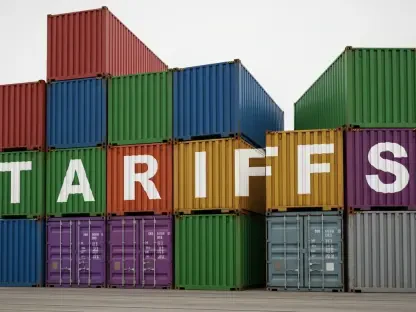Amid the tumultuous waves of global economic disruptions, the UK stands at a pivotal crossroads—could a newly unveiled trade strategy potentially transform the backbone of its supply chains? Recent global events like the COVID-19 pandemic exposed glaring vulnerabilities within supply chains across the globe. Meanwhile, an intriguing statistic reveals that nearly half of the UK’s manufacturing sector relied heavily on overseas components, drawing attention to the need for a robust strategy.
The Crucial Moment for the UK’s Economy
In the wake of profound events such as the pandemic and Brexit, reshoring has emerged as a critical strategy for bolstering economic resilience and security. The intricacies of globalization, once celebrated, have increasingly become liabilities amidst rising geopolitical tensions. This era demands an approach that guarantees economic stability and national security, prompting this strategic pivot to mitigate risks and safeguard the UK’s economic future.
Analyzing the Strategy’s Core Components
Central to this newly rolled-out trade strategy is the establishment of a dedicated Supply Chains Centre, designed with the mission of untangling vulnerabilities hidden within crucial manufacturing inputs. Complementing this effort is the Economic Security Advisory Service, focusing on pinpointing threats to key sectors such as robotics and automation from geopolitical uncertainties. Emphasizing reshoring highlights the strategy’s recognition of the necessity to secure supply chains locally, augmented by substantial export credit and financial incentives, especially beneficial for small enterprises.
Perspectives from Industry Experts
Voices from the industry provide keen insights into the potential impact of this strategy. Stephen Phipson, the CEO of Make UK, sees promise in the strategy’s structured approach, noting the importance of timely and efficient implementation in enhancing cross-border trading processes. Logistics UK underscores the urgency of establishing digitized borders and seamless customs operations, vital for maintaining the swift import and export of essential robotics components. Such expert opinions paint a picture of a future where the UK could leverage these strategic moves to strengthen its economic fabric.
Real-World Applications and Business Adaptation
Businesses stand to benefit significantly from initiatives such as the Small Export Builder scheme, which caters to smaller enterprises eager to navigate the complexities of international trade. Companies can align their strategies by embracing new trade frameworks and adopting digital standards, positioning themselves to take full advantage of the UK’s modernized trade landscape. Furthermore, aligning with the clean energy transition is not only encouraged but is also perceived as a vital step for future-oriented industries seeking sustainability.
Reflecting on the Path Forward
The UK’s proactive trade strategy marked a substantiated effort to reinforce its supply chain defenses while aligning with technological and environmental advancements. By the strategy’s introduction, the groundwork for transforming and fortifying the nation’s supply chains was laid. Its future success hinged on the effective implementation of policies, sector collaboration, and continuous evolution to respond to emerging challenges within the global trade environment. The path forward was about more than just response; it was an opportunity to proactively shape a resilient and innovative economic future.









